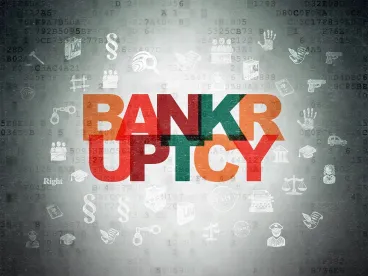Filing an involuntary bankruptcy petition is fraught with risk. If the court dismisses the involuntary petition, the creditors who filed the petition (referred to as the petitioning creditors) may be liable for damages caused by the filing and even punitive damages. A recent opinion from the District Court for the District of Nevada in State of Montana Department of Revenue v. Blixseth increases the risk for petitioning creditors and may have the effect of decreasing the number of involuntary filings.
In Blixseth, four creditors filed an involuntary Chapter 7 petition against Timothy Blixseth. Three of the creditors were the taxing authorities for the states of Montana, Idaho and California, and the fourth creditor was the liquidating trustee of the Yellowstone Club Liquidating Trust. Blixseth, as the alleged debtor, moved to dismiss the involuntary petition, arguing that the involuntary petition did not meet the Bankruptcy Code’s requirement that at least three qualified creditors join in the petition.
Section 303(b) of the Bankruptcy Code sets forth the requirements for filing involuntary petitions. In order to qualify as a petitioning creditor, the creditor must hold a claim “that is not contingent as to liability or the subject of a bona fide dispute as to liability or amount….” If the alleged debtor has fewer than twelve creditors, an involuntary case can be commenced by one qualifying creditor. Otherwise, three qualifying creditors are necessary.
Following a two-day evidentiary hearing, the bankruptcy court dismissed the involuntary petition, holding that the Bankruptcy Code disqualifies petitioning creditors whose claims are the subject of any bona fide dispute. Blixseth challenged the validity and the amount of the claim proposed by Montana and also challenged the amount of the claim proposed by California. Accordingly, the bankruptcy court held there were not three qualifying creditors bringing the involuntary petition. The Montana Department of Revenue appealed.
The central issue on appeal was whether a creditor is qualified to file an involuntary petition if there is a bona fide dispute as to any amount of the creditor’s claim. Montana argued that a petitioning creditor “is not disqualified even if a bona fide dispute exists regarding a portion of its claim,” so long as the undisputed portion of the claim satisfies the statutory minimum requirement. The district court rejected Montana’s argument, finding that it was contrary to section 303(b) of the Bankruptcy Code:
The statute places no qualifier or limit on “bona fide dispute as to…amount.” The text does not indicate that a bona fide dispute as to amount is relevant or material only if it lowers the claims below the statutory threshold.
Because the claims brought by Montana and California were the subject of bona fide disputes, the court held that they were not qualified creditors to bring the involuntary petition and that dismissal was appropriate.
It remains to be seen how many courts will following the district court’s holding in Blixseth. Nevertheless, Blixseth may have a significant impact in the use of involuntary petitions by creditors seeking to collect on their claims from recalcitrant debtors. The court’s interpretation of section 303(b) makes it more difficult to qualify as a petitioning creditor since any dispute as to any portion of the creditor’s claim can nullify the creditor’s ability to file an involuntary petition. The district court’s opinion also puts the onus on counsel to thoroughly review the claims asserted by creditors who want to file an involuntary petition in order to ensure that they qualify as petitioning creditors. If creditors take into consideration both the section 303(b) standards and the significant downside risk if the petition is dismissed, they may end up shying away from filing an involuntary petition and may opt for enforcing their state law remedies.



 />i
/>i
